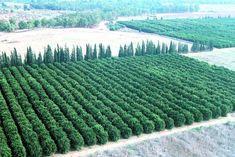
The seven-year controversy between the EU and Israel regarding labeling products, fresh produce included, has come to a happy end, following the signing last week in Brussels of an agreement.
Produce from the settlements in the West Bank and the Gaza Strip will from now on be marked with the place of origin, including the name of the city or town where they were made. Until now, produce made in the territories was labeled "Made in Israel" which exempted the exporters from paying tax and customs as prescribed in the 25-year long preferential trade agreement between Israel and the EU.
According to the EU the label "Made in Israel" was a breach of Israel's free-trade agreement with the 25-nation bloc. Two years ago, the EU notified European importers to collect deposits that could be liable to duty. The goods included, citrus, tomatoes and tomato juice from the territories. Now, for example, products labeled "Made in Ariel, Israel," will be subjected to pay customs and tariffs, but not those marked "Made in Beer-Sheva, Israel."
According to the European Commission, the settlements are not recognised internationally as belonging to Israel, and the EU has long believed that products made in the territories should not benefit from the trade preferences granted to Israel.
Deputy prime minister and minister of industry and trade Ehud Olmert, who in the past eight months negotiated with the EU on this issue, commented that failure to reach this agreement "would have jeopardised Israeli trade with the 25 EU member countries”. Exports from the settlements represent less than one per cent of the US$7.6 billion (£4.13bn) in annual exports from Israel to the EU. Trade sources commented that the importance of the new pact "lies in its political implications rather than its economic aspects”.



